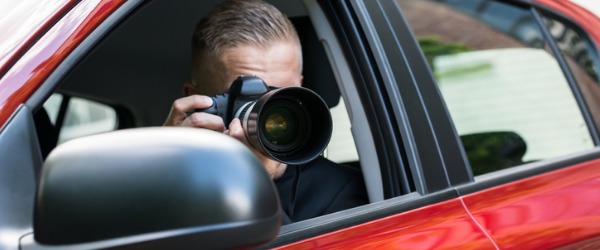What is a Private Detective?
A private detective is someone who delves into things, finds facts, and analyzes information about legal, financial, and personal matters. They offer many services, including verifying people's backgrounds, tracing missing persons, investigating computer crimes, and working for celebrities.
What does a Private Detective do?

Private detectives typically do the following:
- Interview people to gather information
- Do various types of searches, using computer or non-computerized records
- Conduct surveillance (looking for, following, or watching a person without that person noticing)
- Collect evidence to present in court
- Verify employment, income, and facts on a person's background
- Investigate computer crimes, such as identity theft and illegal downloads
- Help in cases of criminal and civil liability, missing-persons cases, and insurance claims and fraud
Private detectives typically work for individuals, attorneys, or businesses. Some have their own investigative agency. Private detectives offer many services, based on clients' needs. They may perform pre-employment background checks, look into accusations that someone has been stealing money from a company, or prove/disprove infidelity in a divorce case.
Private detectives use a variety of tools when researching the facts in a case. Much of their work is done with a computer, which allows them to quickly get information, such as records of a person’s prior arrests, telephone numbers, social networking-site details, and emails. They make phone calls to verify facts, such as a person's income and place of employment. They also interview people when conducting a background investigation. Investigators may go undercover, pretending to be someone else to go unnoticed, to get information, or to observe a suspect.
Detectives also conduct surveillance when investigating a case. They may watch a site, such as the person's home or office, often from an inconspicuous location or a vehicle. Using photographic and video cameras, binoculars, and global positioning systems (GPS), detectives gather information on persons of interest.
Detectives and investigators must be mindful of the law when conducting investigations, and have a good understanding of federal and local laws, such as the privacy laws. However, as the legality of certain methods may be unclear, investigators and detectives must make use of good judgment when deciding how to pursue a case. They must collect evidence properly, so that it can be used legally in court.
What is the workplace of a Private Detective like?
Private detectives work in a wide variety of environments, depending on the case they are working on. Some spend more time in their offices conducting computer searches and making phone calls. Others spend more time in the field, conducting interviews or doing surveillance. Surveillance can be time consuming.
Investigators generally work alone, but they may work with others while conducting surveillance or following a subject. Some of the work involves confrontation, so the job can be stressful and dangerous. Some situations, such as certain bodyguard assignments for corporate or celebrity clients, call for the investigator to be armed. In most cases, however, a weapon is not necessary because the private detectives and investigators’ main purpose is information gathering, not law enforcement or criminal apprehension.
Owners of investigative agencies have the added stress of having to deal with demanding, and sometimes distraught, clients. Private detectives often work irregular hours because they need to conduct surveillance and to contact people outside of normal work hours. They may work early mornings, evenings, weekends, and holidays. In addition, they may have to work outdoors, or from a vehicle, in all kinds of weather.
Private Detectives are also known as:
Private Investigator